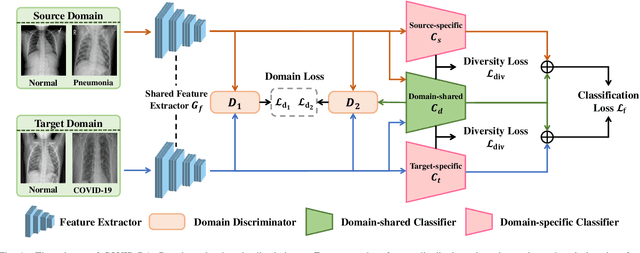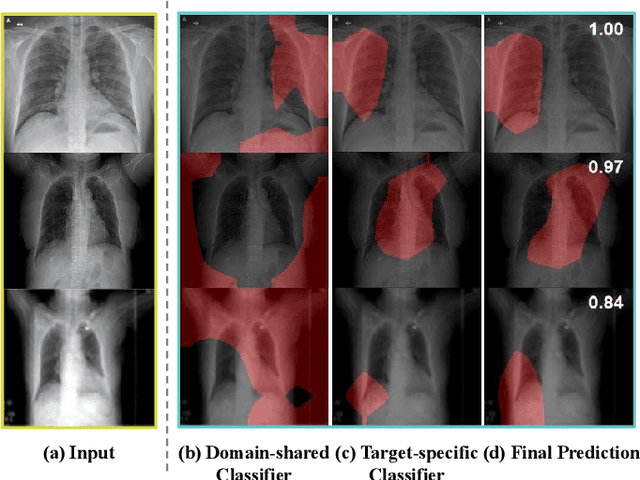COVID-DA: Deep Domain Adaptation from Typical Pneumonia to COVID-19
Paper and Code
Apr 30, 2020



The outbreak of novel coronavirus disease 2019 (COVID-19) has already infected millions of people and is still rapidly spreading all over the globe. Most COVID-19 patients suffer from lung infection, so one important diagnostic method is to screen chest radiography images, e.g., X-Ray or CT images. However, such examinations are time-consuming and labor-intensive, leading to limited diagnostic efficiency. To solve this issue, AI-based technologies, such as deep learning, have been used recently as effective computer-aided means to improve diagnostic efficiency. However, one practical and critical difficulty is the limited availability of annotated COVID-19 data, due to the prohibitive annotation costs and urgent work of doctors to fight against the pandemic. This makes the learning of deep diagnosis models very challenging. To address this, motivated by that typical pneumonia has similar characteristics with COVID-19 and many pneumonia datasets are publicly available, we propose to conduct domain knowledge adaptation from typical pneumonia to COVID-19. There are two main challenges: 1) the discrepancy of data distributions between domains; 2) the task difference between the diagnosis of typical pneumonia and COVID-19. To address them, we propose a new deep domain adaptation method for COVID-19 diagnosis, namely COVID-DA. Specifically, we alleviate the domain discrepancy via feature adversarial adaptation and handle the task difference issue via a novel classifier separation scheme. In this way, COVID-DA is able to diagnose COVID-19 effectively with only a small number of COVID-19 annotations. Extensive experiments verify the effectiveness of COVID-DA and its great potential for real-world applications.
 Add to Chrome
Add to Chrome Add to Firefox
Add to Firefox Add to Edge
Add to Edge